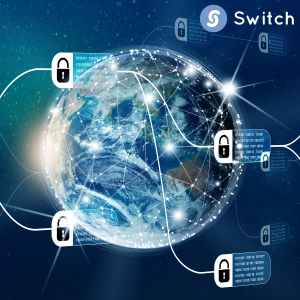
Blockchain and IoT Integration: Enhancing Security and Connectivity
In an increasingly connected world, the fusion of blockchain technology and the Internet of Things (IoT) can change how we interact with gadgets and data. Within the IoT ecosystem, this potent synergy tackles pressing security, data integrity, and interoperability issues. In this article, we’ll examine how the combination of blockchain technology and the Internet of Things is improving connectivity and security and ushering in a new era of reliability and efficacy.
The IoT Landscape: Opportunities and Challenges
Increase in IoT Devices
The demand for solid security and effective data management has increased exponentially due to the proliferation of IoT devices ranging from smart appliances to industrial sensors.
Vulnerabilities in Security
IoT devices are popular targets for hackers because of their interconnectedness and potential security flaws, which make them vulnerable to intrusions.
II. The Role of Blockchain in IoT Security
Unchangeable Database
Data integrity is guaranteed by the blockchain’s decentralized, tamper-proof ledger, which keeps a permanent record of all interactions and transactions inside the IoT network.
Data Transmission With Security
Blockchain enables safe peer-to-peer connection between IoT devices, lowering the possibility of hacking or other data transmission security issues.
Managing Decentralized Identity and Access
Verifying Identity
Blockchain makes it possible to securely authenticate devices and verify identities, preventing unauthorized devices from connecting to the network.
Access Management
Dynamic access control is made possible by smart contracts on the blockchain, ensuring that only authorized devices can communicate and share data inside the IoT ecosystem.
Supply Chain Transparency
Provenance and Traceability
Blockchain integration in IoT makes real-time tracking of commodities and products along the supply chain possible, increasing accountability and transparency.
Prevention of Counterfeiting
Blockchain lowers the possibility of fake goods entering the supply chain by immutably tracking each product’s journey.
Data Monetization and Privacy
Extending Data Owners’ Power
With the help of blockchain technology, owners of IoT devices can maintain ownership over their data and choose when and how to share it, which has led to the emergence of new data monetization models.
Compliance with GDPR
IoT platforms can benefit from blockchain’s openness and cryptography techniques to help them adhere to data protection laws like the General Data Protection Regulation (GDPR).
Interoperability and Standardization
Communication Across Platforms
The established blockchain protocols enable frictionless communication and interoperability among many IoT platforms and devices.
Automating with Smart Contracts
Smart contracts simplify procedures in intricate IoT ecosystems by enabling the automated execution of predetermined actions when particular criteria are satisfied.
Real-World Use Cases
Smart Cities
To build adequate urban infrastructure, optimize energy use, and improve citizen services, blockchain-IoT integration is essential.
Healthcare
Drug traceability and secure medical data exchange between patients and healthcare professionals could revolutionize the healthcare sector.
Integrating blockchain with IoT constitutes a quantum leap to enhance security, connectivity, and data management. This integration can unleash new facets of effectiveness and creativity across businesses by supplying strong security layers, enabling decentralized identification supply chain transparency, and fostering data ownership. The groundwork for a future where trust and connectivity cross naturally in a digitally linked society is being laid by blockchain IoT projects as they continue to develop.

